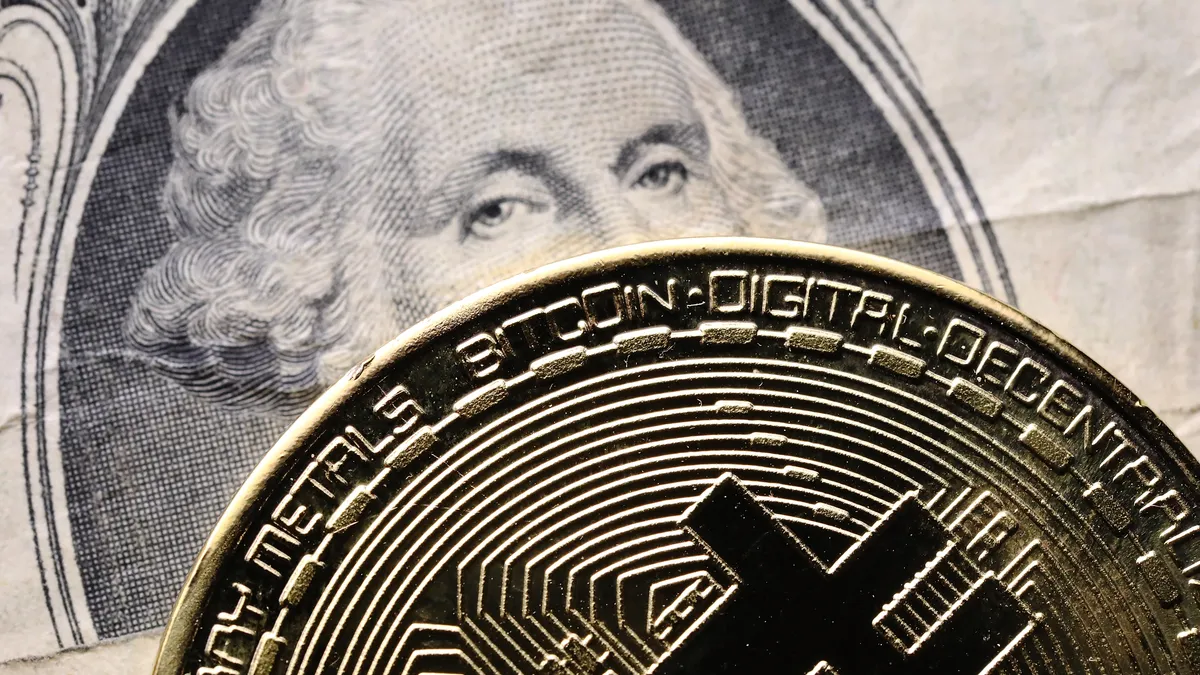While cryptocurrency adoption is not yet commonplace among mainstream American consumers, its current user base is strong enough to turn the tides, Jagruti Solanki, CFO of Bitcoin and cryptocurrency payment provider BitPay, told PYMNTS in an interview Friday.
Customers already spending cryptocurrency have strong incentives to continue doing so, which means the payment form will “emerge as the next evolution in modern alternative payments,” Solanki said.
Most crypto customers bought the digital payment several years ago, and have been holding onto them rather than selling them for a profit, she added. “But now, they feel like it’s a good time to spend it, because today’s prices are great; it’s literally like they’re getting stuff for free.
But turning a profit isn’t the only reason someone might want to spend crypto, she said, noting waning interest in volatile cryptocurrencies, such as Bitcoin, and growing interest in stablecoins, a type of cryptocurrency linked to an asset, such as the U.S. dollar, which keeps its value from fluctuating too much.
The benefits of spending stablecoins are its convenience, enhanced security and privacy, all of which she said overshadow the benefits of legacy payment methods, like credit cards.
In December 2020, BitPay filed an application with the Office of Comptroller of the Currency (OCC) to become a national trust bank, Banking Dive reported, a move against which lawmakers and trade groups have consistently pushed back.
"We oppose the OCC's effort to grant commercial companies like Amazon or Facebook a national payments charter to access to the Federal Reserve payments system and safety net ... without protecting the financial system and consumers from the concomitant increase in systemic risk," the American Bankers Association, the Bank Policy Institute, the Independent Community Bankers of America and The Clearing House wrote in a letter to lawmakers in September 2020.
In February, BitPay announced U.S. cardholders can add their BitPay Prepaid Mastercard to Apple Wallet, making it more convenient to purchase everyday items using the cryptocurrency payment service, according to Payments Dive. It has since begun supporting Google Pay and Samsung Pay.
BitPay's mobile wallet lets users convert cryptocurrencies into standard currencies and load them onto their Mastercard, the company said, according to Payments Dive. The BitPay Wallet currently allows users to transact using Bitcoin, Bitcoin Cash, Ether, USDC, GUSD, PAX and BUSD.
On the whole, consumers tend to use cryptocurrencies more often for larger purchases, such as real estate, jewelry or cars, according to PYMNTS.
According to a July PYMNTS survey, entitled The Cryptocurrency Payments Playbook, 40% of consumers interested in using crypto to buy real estate are “motivated by the promise of eliminating intermediaries such as banks and escrow.”
If a real estate transaction is conducted with a cryptocurrency, Solanki said, settlement is almost instantaneous “because you’re not waiting on multiple intermediaries or currency transactions to occur during the process.” Additionally, because transaction costs are lower than with traditional payments, the percentage the buyer pays is lower too.
Despite the pronounced advantages, at Atlanta-based BitPay, Solanki and her team have found many potential consumers are hesitant to opt into cryptocurrency due to unfamiliarity with how to use it and where to buy it. This knowledge gap has persisted since crypto’s earliest days and is likely to persist for many years, Solanki said, as the payment form is still evolving and not yet mature.
“Early adopters benefit from the advantages crypto provides, and regulations are starting to catch up and ensure consumers using crypto can do so with confidence and oversight,” she said. “It’s in the early stages for sure, but a lot of companies are accepting it and institutional adoption has already started to happen."












